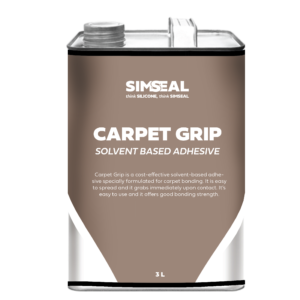Sealant Adhesive Supplier in Australia
Sealant adhesive is a type of adhesive that serves a dual purpose: it seals gaps and joints, preventing the ingress of air, water, dust, or other substances, while also providing adhesion to bond surfaces together. This type of adhesive is commonly used in various industries, such as construction, automotive, aerospace, and manufacturing, to achieve both sealing and bonding functions in one product.
Sealant adhesives can come in different forms, such as liquids, pastes, tapes, or gels, depending on the specific application and the materials being joined. They are designed to provide a flexible and durable bond that can withstand environmental factors like temperature changes, vibrations, and exposure to moisture.
Some common types of sealant adhesives include:
Silicone Sealants: These are versatile sealants that offer excellent flexibility and resistance to high temperatures. They are often used in applications where a water-resistant or heat-resistant seal is needed, such as in bathrooms, kitchens, and around windows.
Polyurethane Sealants: Polyurethane sealants provide strong adhesion and elasticity, making them suitable for applications where movement or expansion is expected, like in joints and gaps in buildings or automotive structures.
Acrylic Sealants: Acrylic sealants are water-based and typically used for indoor applications. They offer good adhesion and can be painted over once cured.
Butyl Sealants: These sealants are known for their excellent water resistance and are often used in applications that require a waterproof seal, such as sealing roofing materials.
Epoxy Sealants: Epoxy sealants provide a strong and durable bond, making them suitable for bonding and sealing in applications where high strength is essential.
Anaerobic Sealants: These sealants cure in the absence of air and are often used to seal threaded connections, such as pipe fittings, to prevent leaks.
MS Polymer Sealants: Modified silane (MS) polymers offer a versatile solution with good adhesion to various surfaces and resistance to UV radiation and weathering.
When using sealant adhesives, it's important to follow the manufacturer's instructions for proper application and curing times. Proper surface preparation, cleaning, and compatibility testing are also crucial to ensure the effectiveness of the sealant adhesive.
Read More:- https://simseal.com.au/

Comments
Post a Comment